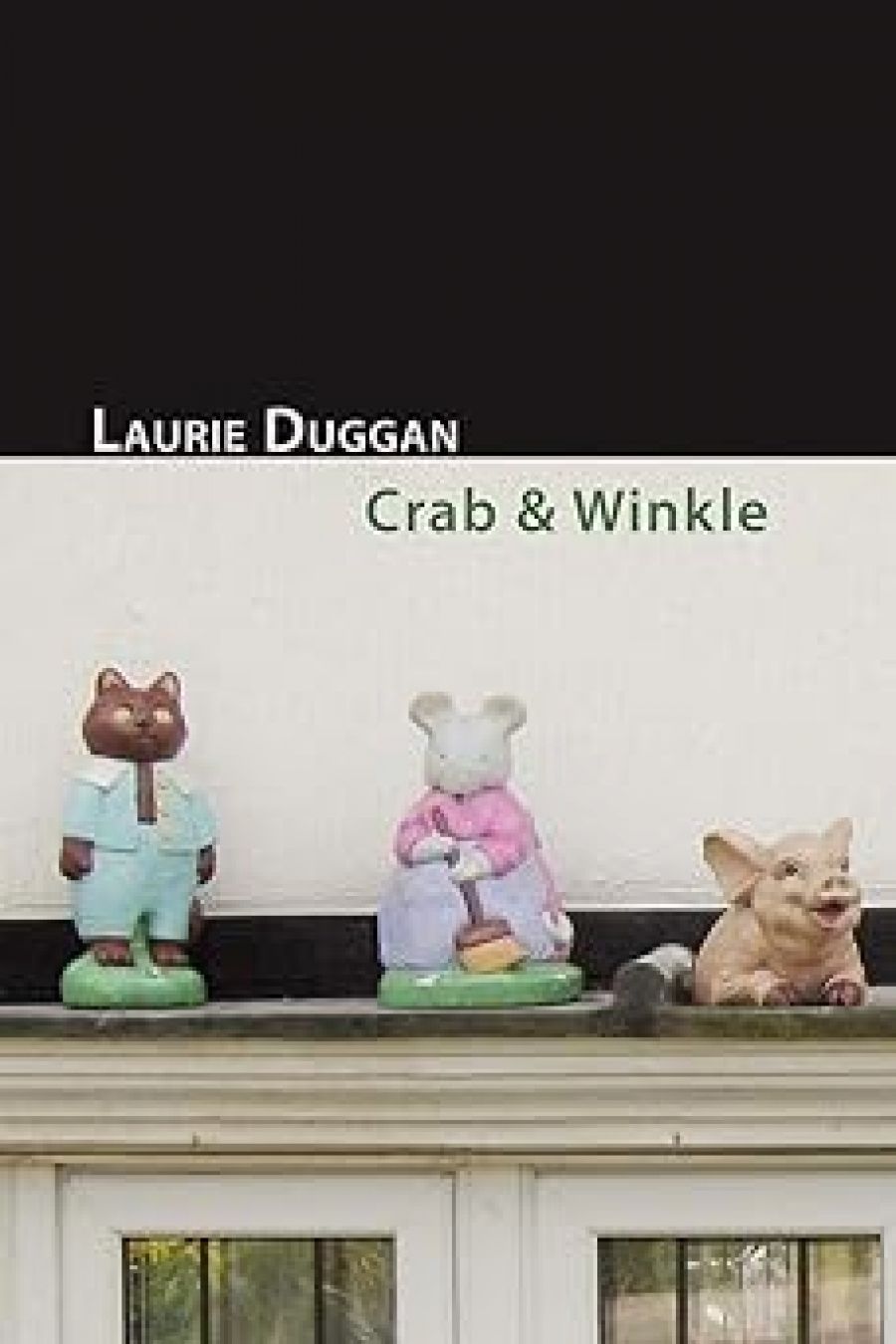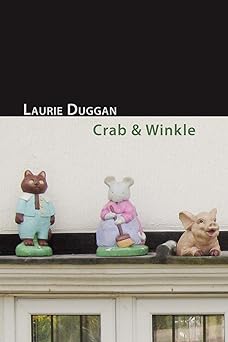
- Free Article: No
- Contents Category: Poetry
- Review Article: Yes
- Article Title: Buzzing off
- Online Only: No
- Custom Highlight Text:
In the ‘March’ section of his new collection, Laurie Duggan writes, ‘(but I am the neighbours) // (I am, perhaps, Neighbours)’. The couplet points to several things: being an Australian in England; Duggan’s persona of observant neighbour; the banality and plurality (‘neighbours’) of Duggan’s perspective. The plurality is one of many levels: Duggan’s neighbourly approach is applied not just to the physical world but to ideas, reading, poets, music, politics and history. He is, paradoxically, a neighbour to himself and his own writing.
- Book 1 Title: Crab & Winkle
- Book 1 Subtitle: East Kent & Elsewhere, 2006–2007
- Book 1 Biblio: Shearsman Books, £10.95 pb, 163 pp
- Book 1 Cover Small (400 x 600):

The title of this book-length poem, Crab & Winkle: East Kent & Elsewhere, 2006–2007, indicates a regional English theme, in the way that Duggan’s earlier titles The Ash Range (1987) and Mangroves (2003) suggested Gippsland and Brisbane, respectively. The main title is taken from an old railway route, recalling The Passenger (2006). The poem is made up of sections titled with months of the year, from ‘September’ to ‘August’. These sections are in turn made up of segments. The back cover describes the book as ‘a warped Shepherd’s Calendar for the age of climate change’. This presents Duggan as a poet of place – or an ‘eco poet’. Crab & Winkle’s range and variety demonstrate what an (unsentimental) poetry of place might be: one that is subjectively informative, with all the mundanity that everyday subjectivity implies, and one that mostly abstains from rhetoric.
‘September’ begins with ‘gathering swallows &c // a rabbit crushed on the road is removed within hours’. This neatly sums up the pastoral and the anti-pastoral in one couplet. Yet this isn’t merely Duggan being nifty. Swallows and rabbits don’t signify the same thing in an English landscape that they do in an Australian. Even in Australia, it is not simple: do we identify the rabbit as invader or migrant, or as representative of the natural world? Is a rabbit sometimes just a rabbit?
On the facing page, another couplet begins ‘compost (this notebook) // vapour trails’. The word ‘compost’ alludes to language or writing as ‘compost’, writing that enriches later writing. But Duggan is saying multiple things here. We can read it as ‘this notebook’ (that either constitutes the poem, or that this part of the poem comes from) is made of ‘compost’; or ‘this notebook’ is ‘compost’ for a later writing. Or the phrase can be read as an instruction to himself or the reader: the word ‘compost’ as verb. But whether Duggan means to compost the notebook to make the poem, or to negate the importance of the poem – that is, advise readers to ‘compost after reading’ – is not made explicit.
The following ‘vapour trails’ complicates, or pollutes, matters even further. Here, the double spacing might suggest that the two lines are not directly linked; ‘vapour trails’ could be description following a text-reflexive line. Regardless, there is a clear thematic link between the two lines. The beautiful and toxic (and ‘Futurist’) nature of vapour trails is made more explicit in ‘January’. It is typical of Duggan’s ironic and self-deprecatory style to link writing to exhaust: something that looks pretty but is toxic; something that can’t be composted. This separates writing as a concept from writing’s materiality in the compostable ‘notebook’.
These two quotes from the poem suggest that Duggan is writing an ‘eco-poem’. He can’t avoid writing of the ruining of the planet, any more than he can avoid writing of his friends. It is a poem of and about living. a de-mastered (‘December’ ends: ‘I could end with something portentous // Or I could just do this: [image of scribble]’) but not depersonalised poem allows multiple meanings. The poem ruminates in place as much as of place. We are reminded that ‘place’ in a poem is textual. In ‘January’, Duggan refers to signage mistakes: ‘a title / confidently inked / proves a mistake / there was never / such a place.’
Duggan’s residence in Kent occasions many thoughts on Australia and its poetry. Duggan makes a joke (again, a textual one) of the Australian habit of making ‘big’ icons; his own choice in ‘October’ is ‘the big ampersand’. In ‘December’, he writes:
Other than my friends, their news, all I hear of Australia is cricket, drought, and the Australian Wheat Board Scandal. In the English papers the place may as well not exist.
In these two sentences Duggan deftly negates both Australia and England. He also poses his own displacement, of being from a ‘place [that] may as well not exist’. ‘November’ concludes, ‘I’m unlocatable / “somewhere in London”’. But in ‘December’, ‘everyone’s in the same boat (stranded airline passenger)’.
By the halfway point of ‘March’, it might seem as if the poem will continue in the same vein. There is a turn here though, toward prose and a more serious tone – and an engagement with considerations of writing as a practice. There is a sense of loosening as the book comes to a close (a slogan quoted in mixed type, in German mingled with English). In yet another emblematic instance, the book ends: ‘a buzzing insect enters then leaves the room’ – in other words, ‘I’m buzzing off now’.


Comments powered by CComment